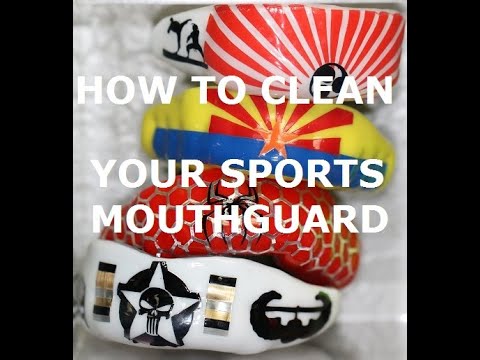How to Clean Your Sports Mouth Guard
Contents
Whether you’re a professional athlete or a weekend warrior, you know that keeping your gear clean is important. That includes your mouth guard! Here’s a quick and easy guide on how to clean your sports mouth guard.
Checkout this video:
Introduction
A mouth guard is an important piece of equipment for any athlete. Not only does it protect your teeth from being knocked out or chipped, it also helps to absorb shock and prevent concussions. Because they are in such close contact with your mouth, they can easily become dirtied with bacteria and other germs. That’s why it’s important to clean your mouth guard on a regular basis.
There are a few different ways that you can clean your mouth guard, but the most important thing is to use a gentle cleaning solution so that you don’t damage the material. You also want to make sure that you rinse the mouth guard thoroughly so that there is no residue left behind.
One way to clean your mouth guard is to soak it in a denture-cleaning solution for about 30 minutes. This will help to kill any bacteria that might be living on the surface of the mouth guard. After soaking, rinse the mouth guard thoroughly with water and allow it to air dry before putting it back in your mouth.
Another way to clean your mouth guard is to brush it with a toothbrush and toothpaste. Be sure to use a gentle toothpaste so that you don’t damage the material. Rinse the mouth guard well after brushing, and then place it in a clean case until you are ready to use it again.
You should also make sure that you clean your mouth guard case on a regular basis. This will help to prevent the buildup of bacteria and other germs. Simply wash the case with soap and water, and then dry it thoroughly before putting your mouth guard back inside.
The Right Way to Clean Your Mouth Guard
Mouth guards are essential for protecting your teeth and gums while playing sports. It is important to clean your mouth guard after every use to remove bacteria and to prevent it from becoming a breeding ground for germs. There are a few different ways that you can clean your mouth guard, but the most important thing is to be thorough.
What You Need
To clean your mouth guard, you will need:
-A toothbrush with soft bristles
-Toothpaste
-Mouthwash (optional)
-Clean water
-A container to store your mouth guard in when you’re not using it
The Steps
The American Dental Association recommends that you clean your mouth guard after each use. The steps below will help you keep your mouth guard clean and in good condition.
1. Rinse your mouth guard with cold water to remove any saliva or debris.
2. Brush your mouth guard with a toothbrush and mild soap. Be sure to brush all surfaces of the mouth guard, including under the braces if you have them.
3. Rinse your mouth guard again with cold water.
4. Store your mouth guard in a clean, dry place.
The Wrong Way to Clean Your Mouth Guard
You might think that boiling your mouth guard is the best way to clean it, but it actually isn’t. Boiling your mouth guard can actually damage it and make it less effective. In this article, we’ll show you the right way to clean your mouth guard so that it lasts longer and stays effective.
What Not to Use
You might be tempted to use Bleach or Other Harsh Cleaners on Your Mouth Guard, but this is a Bad Idea. These chemicals can weaken or damage the materials in your mouth guard, making it less effective and more likely to break. Instead, use a mild soap (like dish soap) and lukewarm water to clean your mouth guard.
The Steps You Shouldn’t Take
Cleaning your mouth guard is important, but there are some steps you should never take. Here’s what you need to know.
First, never use hot water to clean your mouth guard. Hot water can damage the materials and make the mouth guard less effective.
Second, never use alcohol-based cleaners or bleaches. These can also damage the materials and make the mouth guard less effective.
Third, never clean your mouth guard with your toothbrush. Toothbrushes are designed to clean teeth, not mouth guards. Using a toothbrush can damage the materials and make the mouth guard less effective.
Fourth, never share your mouth guard with anyone else. Mouth guards are personal items that should not be shared with others. Doing so can spread germs and increase the risk of infection.
Following these simple steps will help you keep your mouthguard clean and effective.
Conclusion
Rinsing your mouthguard with cold water after every use is the best way to prevent bacteria and other germs from growing on it. You should also clean it regularly with soap and water, and store it in a cool, dry place. Be sure to replace your mouthguard if it becomes damaged or starts to show signs of wear and tear.







